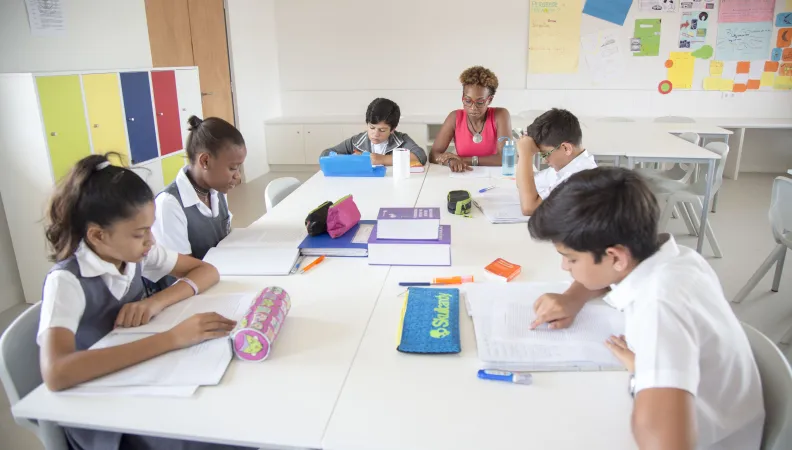Share the page
Developing educational excellence in Mozambique
Project


-
Project start date
-
Status
Ongoing
-
Project end date
-
-
Project duration
-
20 years
-
AFD financing amount
-
US$ 25 000 000
-
Country and region
-
Location
-
Maputo
-
Type of financing
-
Beneficiaries
-
Aga Khan Education Services (AKES)
AFD is contributing to the development of educational excellence in Mozambique, with the aim of training the country's future elites, irrespective of social background.
Context
The civil war that afflicted Mozambique from 1977 to 1992 left the national educational system in a state of ruin. Thanks to the mobilisation of the Mozambican government and its partners, the education sector recovered at the beginning of the 2000s. Primary education became free in 2004, and in 2011, 91% of children were attending primary school. However, the primary education completion rate remains poor at 31%.
The government’s Strategic Plan for Education for 2012-2016 prioritises good governance, social inclusion and improved quality of education.
In terms of the last two priorities, private education does not compensate the shortfalls in public education. Quality is very uneven and there is no policy subsidising access to education for disadvantaged people.
Description
AFD is financing the construction of a school of excellence, the Aga Khan Academy, in the outskirts of the capital city Maputo. The Academy provides high-level primary and secondary education with the goal of training future highly qualified and socially responsible professionals to help Mozambique fulfil its social and economic development ambitions. The Academy will actively enroll highly gifted and talented students from disadvantaged backgrounds who will be exempt from paying school fees.
The students’ curriculum follows the International Baccalaureate’s, which focuses on thinking critically and independently, and learning to enquire with care and logic.
The Aga Khan Academy is one of the 240 learning institutions managed by the Aga Khan Development Network (AKDN), which promotes projects in the area of education, rural development, environment, architecture, economic development and civil society strengthening.
With funding from AFD, AKDN built a campus with a world-class teaching and learning environment. Set on 90,000 square metres of land, the Aga Khan Academy had 81 students at the end of 2018 – an equal number of boys and girls – across kindergarten to grade 12. It plans to accommodate 750 primary and secondary students by 2026, with 75 graduates per year.
A portion of the land on which the development sits will be used to build 90 rental apartments, whose revenue will be used to ensure the Academy’s long term sustainability and to fund future bursaries to students from poorer households.
Impacts
- Construction of a new Academy with world-class infrastructure and primary and secondary educational excellence, including for children from disadvantaged backgrounds;
- Integration of French language and culture in the curriculum from an early age;
- Academy with strong governance, and a sustainable and highly viable social economic model;
- Support to the public education system through a teacher training centre.


